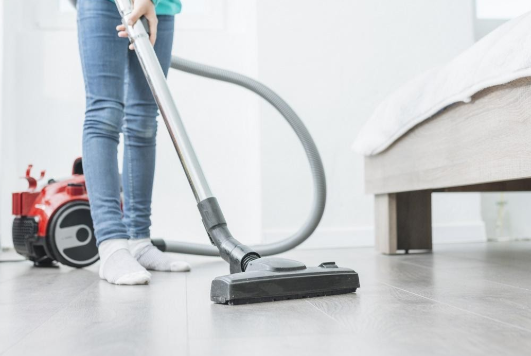A vacuum cleaner is a convenient tool that has made our lives easier in countless ways, but little most of us know is that a less effective vac can affect indoor air quality and not for the better. Researchers have been warning us about vacs spewing dust, bugs, and allergens back into the air we breathe for years. Have we listened?
Some of us have upgraded to a HEPA vacuum cleaner, especially if we are allergy sufferers or our loved ones live with the condition or are prone to infections. However, even HEPA vacuum cleaners can swiftly turn into biohazard if they are not properly designed.
Experts warn that a vacuum cleaner needs to have “sealed system” label on it to make sure that the air is trapped inside and gets through the HEPA filter before going out, with zero air leaks. Don’t buy into marketing claims such as “premium” HEPA filtration. If the vacuum is not sealed properly it is a good as a non-HEPA unit.
How Do Vacuum Cleaners Affect Indoor Air Quality?
HEPA vacuum cleaner makers claim that their devices can trap up to 99.97% of particles down to 0.3 microns. If the claim were true, we would be safe from most viruses, bacteria and allergens. However, because less expensive units leak air like there’s no tomorrow when circulating it, these claims are worthless.
Plus, even if the machine is air-tight, there are disease-causing bugs that are less than 0.3 microns in size. So, you can never be too safe. You could further upgrade to a model with a ULPA filter. ULPA (Ultra Low Particulate Air) is a mechanical filter that can trap 99.99% particles down to 0.1 microns. But those machines can cost thousands of dollars right now.
Also, to prevent the vacuum cleaner from spitting unhealthy air back into your home, you should make sure that the motor exhaust filter is a sealed HEPA filter as well. This feature is usually available on pricier vacuum cleaners like the Shark Navigator DLX (you can read review online before shelling out your heard-earned cash; just look for buzzwords like “complete seal tech” or “certified anti allergen.”)
But the most surefire way to make sure that the vacuum cleaner doesn’t affect indoor air quality is a central unit. Central units are quiet, and the collection chamber and filtering system are located outside your home. So, the risk of these units of contaminating the air you breathe is almost null. Central units are the best solution in our opinion for families with kids, pets, and allergy-prone members.
How Can You Tell If Your Vacuum Affects Air Quality?
A vacuum cleaner that is also a source of pollution in your home will give off a specific smell. Vacuum cleaners might smell if pet hair or dust bags sit for too long in the collection chamber, But what you are looking for is a distinctive burning dust smell which nearly all less effective vacuum cleaners have in common.
Tips for Boosting Indoor Air Quality
- Before vacuuming ensure that there is plenty of cross ventilation in the room. Open all windows and doors and let them open some time after finishing the job to get rid of any unhealthy airborne particles re-circulated in the air.
- It is best to vacuum first and dust last to prevent indoor particles from settling on freshly cleaned furniture. Also use wet wipes and a polishing cloth when dusting to prevent dust particles from becoming airborne once more.
- If you are still concerned about your family’s health, use an air purifier too beside a HEPA vacuum cleaner.
- Also, if you are an allergy sufferer get rid of the rugs or carpets (or at least sanitize them every week).
- When vacuuming, don’t skip hard-to-reach places such as those under or behind furniture; tons of bacteria, allergens, and other nasties hide and thrive there.

